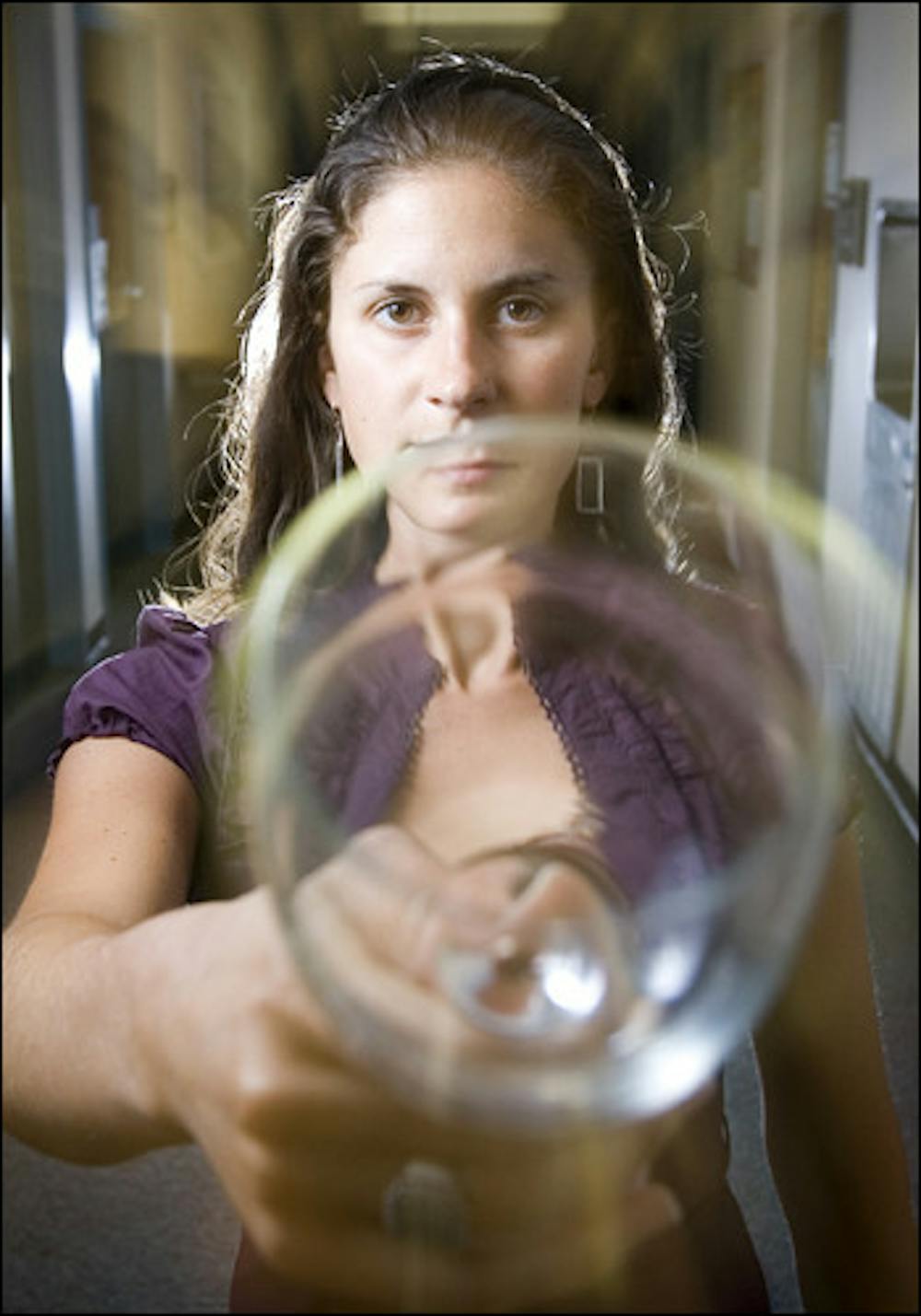Kristen Rasmussen is searching for women who are willing to drink free red wine.
Rasmussen, a nutrition graduate student at the Polytechnic campus, is conducting a study of 20 women to scientifically test her hypothesis that organic red wine has more health benefits than conventionally made red wine.
“I’ve always been passionate about wine,” Rasmussen said. “I think wine links culture, science and art together.”
While searching for a master’s project, Rasmussen discovered information about polyphenols, the antioxidants found in grape skins that provide potential health benefits.
She said she read other studies about health benefits found in the high level of polyphenols in grape skins and hypothesized that organically grown wine grapes should have higher amounts because they are not exposed to harsh pesticides and chemicals.
In Rasmussen’s research methods course, assistant nutrition professor Keith Martin gave a presentation on his previous studies with polyphenols and wine.
Rasmussen chose him as her principal investigator, similar to a mentor, because of their mutual interest in learning more about polyphenols.
As the principal investigator, Martin coaches Rasmussen in running the experiment. He is also the chair for her thesis committee.
Rasmussen began looking for subjects in June after spending a year doing research and getting wine donated from vineyards across the southwestern United States.
An organic red wine, conventional red wine and a white wine dyed red as a placebo are served to the subjects throughout the different test days. The type of red wine served cannot be disclosed before the testing is completed.
To determine if organic wine has more health benefits, subjects’ blood is drawn 30 minutes prior to drinking the wine and 30 minutes and an hour after consuming the wine.
“The biggest surprise about the study was that the blood was drawn from our vein,” wildlife restoration senior Jehnifer Niklas said.
“I was expecting a finger prick,” she said.
“But after we had the wine, the needles and blood work wasn’t as bad as before we’d had a drink.”
She also said the lure of wine and food during the experiment made the blood work bearable.
Rasmussen said more subjects are desperately needed. She had to put herself through the experiment because she is low on volunteers.
“It was really fun, because in the first group we all knew each other,” she said. “We brought cards and games and had a blast.” She said another group watched a movie during each day of testing.
Rasmussen is looking for one more subject for this week’s session and eight subjects to participate sometime later in September.
As a subject in Rasmussen’s study, each woman is required to attend three different days — spaced four days apart — and try one type of wine on each visit.
To qualify as a subject, each woman must fit into several categories: be between 21 and 50 years old; not pregnant; not a smoker; no presence of illness, disease, other critical medical condition; weigh at least 110 pounds; be a moderate drinker (no more than seven drinks a week); and not exercise more than 90 minutes a week.
Qualified people who are interested in becoming a subject for the study can contact Rasmussen at kristen.rasmussen@asu.edu.
Reach the reporter at afleisha@asu.edu.




